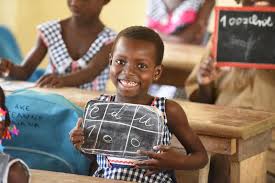A new World Bank Report has estimated that close to seven million students from primary up to secondary education may drop out of school globally due to the income shock of the coronavirus pandemic alone .
The report published by the World Bank Group Education also noted that both the level of schooling and learning will fall globally resulting in a loss of between 0.3 and 0.9 years of schooling adjusted for quality, bringing the effective years of schooling that students achieve during their lifetime down from 7.9 years to between 7.0 and 7.6 years.
The report used data on 157 countries and presented the results of simulations considering different lengths of school closure (3, 5, and 7 months) and different levels of mitigation effectiveness (mostly remote learning), resulting in an optimistic, intermediate, and pessimistic global scenario.
READ ALSO:See list of Nigerian universities accepting JAMB 160 cut-off mark
According to the Report titled, “Simulating the potential impacts of covid-19 school closures on schooling and learning outcomes: a set of global estimates,” the extent of the loss will vary across the globe. It noted that in the absence of any compensatory actions when children return to schools, students from the current school cohort could face, on average, a reduction of $355, $872, and $1,408 in yearly earnings depending on the scenario considered.
“In East Asia and Pacific (EAP) where children were expected to complete 10.4 years of learning adjusting schooling prior to the pandemic, the simulations suggest that COVID-19 could lower LAYS from 10.1 in the optimistic scenario to 9.3 in the pessimistic scenario. At the other end of the spectrum Sub-Saharan African (SSF) children were expected to complete 4.9 years of learning adjusted schooling prior to COVID-19. The optimistic scenario suggests that this would fall to 4.7 years while the more pessimistic scenario suggests this would fall to 4.3 years.
“Exclusion and inequality will likely be exacerbated if already marginalized and vulnerable groups, like girls, ethnic minorities, and persons with disabilities, are more adversely affected by the school closures and corresponding off-setting action is not taken.”
READ ALSO: Scientists identify molecules that can block coronavirus
The report stated that globally, a school shutdown of even five months could generate learning losses that have a present value of 10 trillion dollars, adding that the world could stand to lose as much as 16% of the investments that governments make in this cohort of students’ basic education.
“The simulations presented here indicate the world is poised to face a substantial setback to the goal of halving the number of learning poor and be unable to meet the goal by 2030 unless drastic remedial action is taken,” the report added.
It also indicated that an ongoing learning crisis could be amplified if appropriate policy responses are not prepared to deal with the situation, adding that the projections in the report should “inform mitigation, recovery, and resilience strategies to ensure that these numbers prove overblown.”
READ ALSO: See the names of the top 10 candidates in 2020 UTME
The report however warned that none of its arguments should persuade governments to recklessly reopen schools. “As articulated in the UNESCO, UNICEF, World Food Programme, and World Bank Framework for reopening schools, school re-openings must be safe and consistent with each country’s overall COVID-19 health response, with all reasonable measures taken to protect students, staff, teachers, and their families.”
It said the results underscored the need for mitigation, recovery, and “building back better” strategies. These, it said, should include effective remote learning strategies to provide learning continuity while schools are closed using multiple education technology solutions (radio, television, mobile phones, digital/online tools, and print) with support to students, teachers and parents.
It also urged government to implement appropriate actions to accelerate learning by building more equitable and resilient post-COVID education systems that enable children to learn continuously both in schools and at home.





















